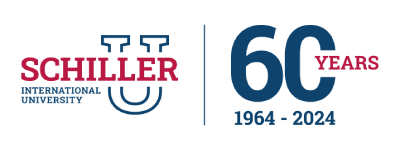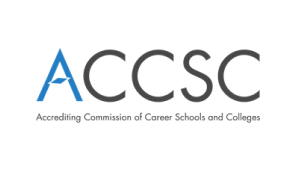The artificial intelligence (AI) revolution is not just about algorithms or machines. It is powered by people who bring new ideas, data, and global perspectives to technology, and international students are at the heart of that transformation. They are shaping how AI is built, where it is used, and how responsibly it evolves. International students bring fresh perspectives, global mindsets, and entrepreneurial energy, which turns laboratories into companies. That mix matters now because demand for AI talent far outstrips supply. Whether you are thinking of studying for an AI degree abroad or considering switching into an AI-related role, your international experience could be the bridge the world of technology needs.
Why AI Revolution Matters and How Global Talent Fits In
The term ‘global AI revolution’ is not just hype. According to the Stanford Institute for Human‑Centered AI, nearly 90% of the most discussed-about AI models in 2024 came from industry rather than pure academia.
The shift shows how applied skills, not just theoretical knowledge, are driving progress. Companies and technology hubs are racing to build real-world systems, and they need people who have both deep technical knowledge and a solid understanding of real-world contexts.
At the same time, AI talent is in short supply. The global market faces more than 1.6 million open AI roles, but only about 518,000 qualified professionals. This shortage means an opportunity for those ready to cross borders, build new skills, and contribute to innovation.
In the United States alone, 70% of full-time graduate students in AI-related fields are international students. They are already a key part of the world’s most advanced AI workforce, designing systems, founding startups, and setting research agendas that shape the future.
How International Students Power Research and Startups
New research shows that international students are more than participants; they are the pioneers of the AI revolution. 42% of top US-based AI companies were founded by people who first came to study as international students. 66% of leading US AI startups have at least one immigrant founder, and among them, 72% originally entered the country on student visas. These are not isolated stories. They show how international education fuels innovation. As an international student in AI, you will gain:
- Access to cutting-edge research in laboratories where global talent congregates.
- Connection with entrepreneurs and founders who were once students just like you.
- Ability to link data, culture, and market understanding across continents.
Best AI Study Routes for International Students
If you want a practical degree that employers value and opens real career doors, look for programs that balance theory with application. Look for:
- Applied machine learning and Machine Learning Operations (MLOps) modules.
- Hands-on projects with live datasets.
- Industry placements or internships.
- Courses on AI ethics, fairness, and governance.
The US and Europe remain top destinations for studying AI, supported by strong research funding and thriving startup ecosystems. The World Economic Forum lists AI and machine learning (ML) specialists among the fastest-growing global roles. It is for this reason that applied programs such as Schiller International University’s BSc in Applied Mathematics and AI are especially valuable. They focus on doing, not just knowing.
Building Your AI Career: Roles, Skills, and What Employers Value
Completing an AI-related degree is an achievement, but it is only the first step. The next stage involves turning knowledge into opportunities. For international students, this means understanding how the global AI workforce is evolving, what skills are most in demand, and where your international perspective adds real value.
Core Career Paths in AI
AI careers are diverse, spanning research, product design, and ethical innovation.
- ML Engineer: Designs and deploys intelligent systems using real-world data.
- Data Scientist (AI/ML focus): Turns data into insights that inform smarter decisions.
- AI Research Scientist: Advances new algorithms and drives long-term innovation.
- AI Product Manager/Strategist: Bridges technical potential with business strategy and user needs.
- Ethics and Governance Specialist: Ensures AI systems are fair, transparent, and compliant with global standards.
Skills Employers Value (and How to Build Them)
To build a career in the revolutionizing field of AI, you need more than technical know-how. The most employable professionals combine depth, adaptability, and global awareness.
- Technical Depth: Build strong foundations in machine learning, data engineering, and deployment tools like MLOps and cloud platforms.
- Global and Cultural Fluency: Learn to interpret diverse datasets, navigate cross-border regulations, and design inclusive AI systems.
- Soft and Strategic Skills: Strengthen communication, problem-solving, and business understanding to connect AI with real impact.
- Ethics and Governance Mindset: Develop awareness of bias, fairness, and regulation, qualities increasingly sought across industries.
Why Multi-campus Universities (Like Schiller) Matter
Global learning environments create global thinkers. Studying across multiple campuses exposes students to varied markets, mentors, and employer networks. It accelerates professional growth by combining academic learning with real-world applications.
Schiller’s intercampus mobility program allows students to study across Europe and the US. You can experience diverse industries, cultures, and innovation ecosystems first-hand. If you want to pursue a career in AI, data, or emerging technologies, that exposure is invaluable. This will help you build both technical skills and global fluency, positioning you for cross-border roles that many companies now prioritize.
The AI revolution is a demand story; a demand for people who can blend technical expertise with cultural intelligence. Studying AI abroad is more than just an academic pursuit. It is how you prepare to join an international workforce that shapes how the world uses technology. By focusing on applied learning, real-life projects, and diverse collaborations, you can transform study into impact and become a part of the next wave of AI leadership.
Explore Schiller’s BSc in Applied Mathematics and AI program to begin your AI journey confidently.
FAQs
Q1. How are international students contributing to AI research worldwide?
Answer: International students are a significant component of the research talent pipeline (e.g., 70% of full-time graduate students in selected AI-related US programs are international). Most move on to research positions or start their own startups that drive industry innovation.
Q2. What are the best AI-related degrees for international students?
Answer: The best AI, machine learning, data science, and AI engineering programs are the ones that focus on applied learning, real-world project work, and industry collaborations. You should look for degrees that combine AI technical depth and exposure to global markets.
Q3. How does studying abroad help students build careers in artificial intelligence?
Answer: A study abroad experience offers you a chance to gain global exposure, access to different datasets, research problems, varied user markets, and diverse classmates. It allows you to think globally, which is a big asset in AI built for many countries.
Q4. Which countries offer the most opportunities for international AI graduates?
Answer: Historically, the US, the UK, and parts of Europe have been able to offer a wide range of opportunities for careers in AI. But increasingly, global hubs and regions outside the traditional route, such as Singapore, Canada, and the UAE, are rapidly growing as AI innovation centers and have started offering meaningful pathways.
Q5. What global skills are essential to succeed in the AI industry?
Answer: To build a successful global AI career, you need to develop a wide range of skills. The include:
- Technical: ML, deep learning, data engineering, and MLOps/deployment.
- Strategic: Understanding AI’s business value, solving real problems, and scaling.
- Global/multicultural: Working with diverse data, users, markets, and cross-cultural collaboration.
- Ethics and governance: Building responsible AI, understanding regulations, fairness, and bias.
- Lifelong learning mindset: The field moves fast. You need to develop a mindset that the skills you learn now will evolve, and you need to do the same with them.

 Request information
Request information









